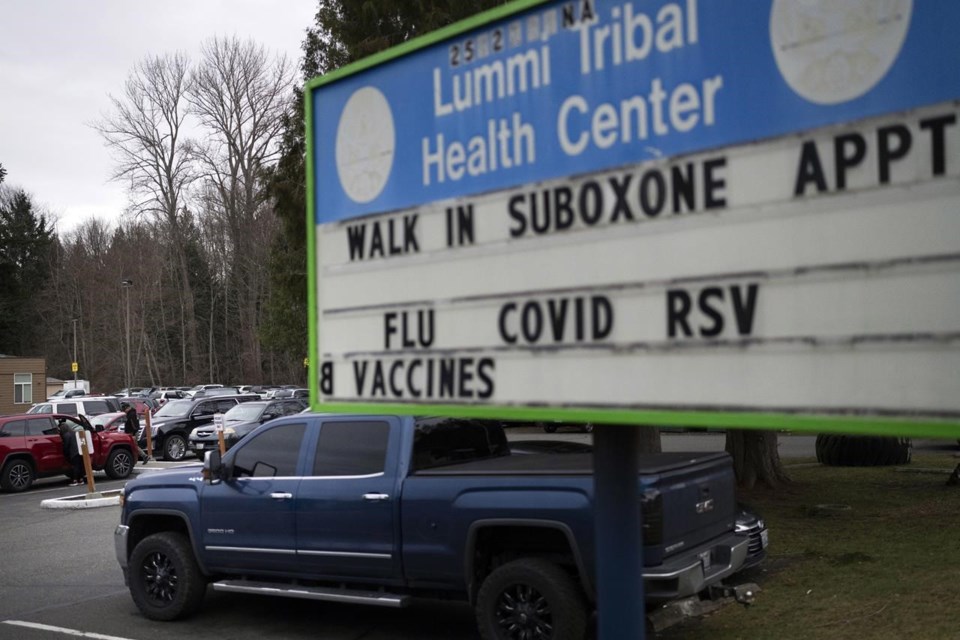TULALIP, Wash. (AP) — Washington Gov. Jay Inslee has signed a multimillion-dollar measure to send state money to tribes and Indigenous people in the state who die from opioid overdoses at disproportionately high rates in Washington.
It was one of seven fentanyl-related bills Inslee signed Tuesday while on the Tulalip Indian Reservation, KING-TV reported. The bills, passed by the state Legislature this session, seek to comprehensively address the fentanyl crisis throughout the state by improving opioid education, overdose prevention, treatment access, recovery supports, and first-responder resources.
“We need to equip first responders with the life-saving materials they need,” Inslee said in an online blog post. “We need to implement programs in public education and prevention. We need special emphasis on youth and Tribal communities. We need to increase the number of treatment facilities to make it easier to get help.”
The state Legislature earlier this month overwhelmingly approved the tribes bill expected to provide nearly $8 million total each year until at least 2031 for the 29 federally recognized tribes in Washington. The funds will be drawn partly from a roughly half-billion-dollar settlement between the state and major opioid distributors.
Native Americans and Alaska Natives in Washington die of opioid overdoses at five times the state average, according to 2021-2022 U.S. Centers for Disease Control and Prevention data that includes provisional numbers. The rate is one of the highest in the country and over three times the rate nationwide.
Officials with tribes such as the Lummi Nation, about 100 miles (161 kilometers) north of Seattle, have said the money would be crucial. Lummi Nation declared a state of emergency last year over fentanyl, adding drug-sniffing dogs and checkpoints, as well as revoking bail for drug-related charges.
The tribe also opened a seven-bed facility to help members with withdrawal and get them on medication for opioid use disorder. In its first five months, the facility treated 63 people, the majority of whom remain on the medication regimen, said Dr. Jesse Davis, medical director of the Lummi Healing Spirit Opioid Treatment program.
“Native American tribes are disproportionately affected, and they have taken a proactive approach to treatment that deserves support,” Republican Sen. John Braun, of Chehalis, said.
One of the other bills signed Tuesday, known as the Lucas Petty Act, will incorporate fentanyl education into the public school curriculum. The bill was named after the 16-year-old boy who died in 2022 after smoking marijuana he didn’t realize was laced with fentanyl. His mother, Maria Trujillo Petty, testified passionately in favor of the bill to the House and Senate during the legislative session.
“No parent should have to go through the heartache of losing a child to an overdose,” said bill sponsor Democratic Rep. Mari Leavitt of University Place. “Our kids are facing a opioid and fentanyl crisis that is deadly and unforgiving. As adults, we owe our kids the information they need to make smart decisions.”
The Associated Press



